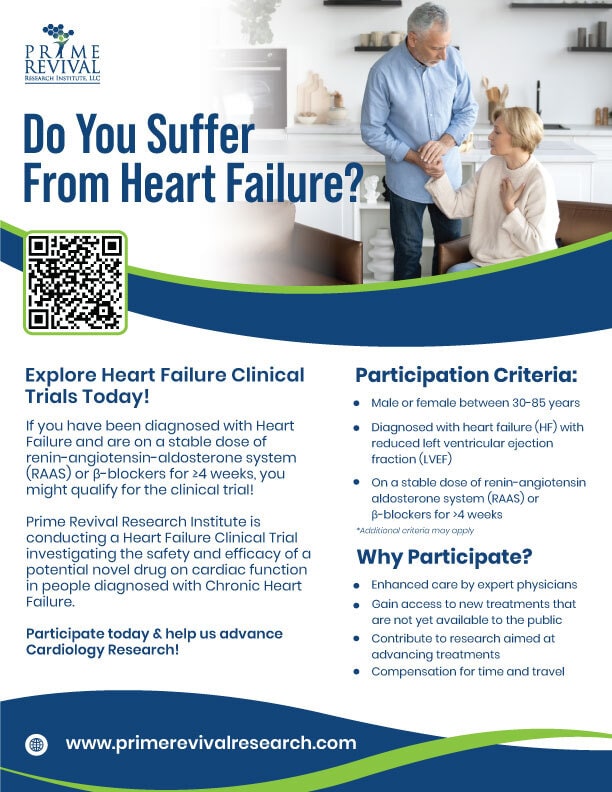Explore potential therapeutic approaches through Chronic Heart Failure Clinical Trials.
Chronic heart failure (CHF) is a long-term, complex disorder, associated with symptoms such as dyspnea, fatigue at rest or during exertion that develops gradually and progressively worsens over time. It is the leading cause of hospitalization and is estimated to affect more than 6 million adults in the United States.
While standard pharmacotherapies improve symptoms and prolong survival, the prognosis for patients with heart failure (HFrEF) is still poor.
Prime Revival Research Institute is conducting Heart Failure Clinical Trials to evaluate the safety and efficacy of a potential study drug in people diagnosed with heart failure (heart failure with reduced ejection fraction or HFrEF).
You may be able to participate if you:
- Are a male or female between 30-85 years
- Have been diagnosed with heart failure (HF) with reduced left ventricular ejection fraction (LVEF)
- Are on a stable dose of renin-angiotensin-aldosterone system (RAAS) or β-blockers for >4 weeks*Additional criteria may apply.
Your doctor will review additional study criteria with you and see if you qualify. If you qualify and decide to participate in the Chronic Heart Failure Clinical Trials, you will receive all study-related care, free of cost.
*You will receive monetary compensation for your time and travel.
*If you think you may be eligible to participate in the Heart Failure Clinical Trials or would like more information, please enter your information in the form so that our research team could see if you qualify and could contact you about the study.


